
 Ryan Benthem has seen his family’s farm grow from 100 cows when he was young to 300 cows after he came home from college to the 3,400 cows it is today. The strategic growth was never outlined in a detailed plan but was just part of the farm’s philosophy to “keep taking advantage of opportunities when they came up and to utilize the land base the best we could.”
Ryan Benthem has seen his family’s farm grow from 100 cows when he was young to 300 cows after he came home from college to the 3,400 cows it is today. The strategic growth was never outlined in a detailed plan but was just part of the farm’s philosophy to “keep taking advantage of opportunities when they came up and to utilize the land base the best we could.”
The straightforward approach led to the installation of a 60-stall rotary in 2016, the purchase of the 400-cow Benthem Homestead Farm in 2018, and the acquisition of an additional 400-cow farm in 2022. With multiple farm locations in a campus style network, Benthem Brothers Dairy’s success is in part thanks to Ryan’s involvement and his role in planning the future of the farm.
“A big part of what I do is try to plan things ahead so that things go smooth,” Benthem said. “I really enjoy looking at how to maximize everything we have. Whether it’s the parlor, or the cow barns, or the equipment, I figure out what makes sense as far as tractors, other equipment and feed to make the most of what we have.”
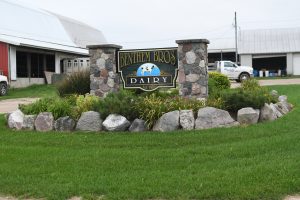
Benthem achieves this by working closely with his dad, uncle, brother and cousin. A team of people that Benthem recognizes has helped him achieve success.
“Working on the farm can be pretty stressful at times, so having a team of people beside me gives more people to share the burden,” Benthem said. “With my family involved, we can have weekends off to get away and relax, and everyone also brings different perspectives and different experiences to the table. Working with a bigger team also makes it more exciting to share wins with.”
While Ryan focuses on herd nutrition and future planning, his brother Kyle manages the crops and his cousin Jason manages the cow herd. Ryan’s dad and uncle help as needed, but have enjoyed stepping back from the day-to-day of the operation to let the next generation continue advancing the farm.
“We have a succession plan in place,” Benthem said. “We meet quarterly as a management team, but after doing this for our entire lives, we know what we need to do.”
In addition to family, Benthem credits the farm’s success to their many dedicated employees. Benthem and his family work hard to regularly communicate with employees on their team and empower them to do the best they can.
“We’ll sacrifice our time to teach people how to do things and give them the tools that they need to do it because we’ve learned that there are only so many hours in the day, and you can’t do everything yourself,” Benthem said. “To be sustainable in the future, we have to teach people how to do a job and trust them to get it done.”
Relying on each other is a requirement of the farm’s recent growth and also a part of the team mentality at Benthem Brothers Dairy.
“I like to compare what we do on our farm to a sporting event or a team,” Benthem said. “Everybody likes to be on a winning team, but it takes a lot more work, and you need to be motivated to win. That’s what motivates me at the farm. I know that I have to do the best every day in order to enjoy it the most.”
Benthem’s competitive attitude ensures that he’s always striving to do the best he can, a mentality that carries over into the farm’s everyday pursuit of improving efficiencies, meeting goals and maximizing resources.
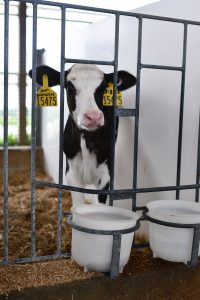
“We’re always looking at ways to do more with less,” Benthem said. “We recently changed from spraying manure to drag lining it and as a result, we’re burning less fuel, putting less wear and tear on equipment, and reducing the disruption to our neighbors.”
The change in practice also gave Benthem an opportunity to use cover crops to limit erosion and to help hold onto nutrients in the field better until the next growing season. These efficiency gains along with others in the past are a result of Benthem’s experiences in the Institute of Agriculture Technology dairy certificate program at Michigan State University (MSU).
“A lot of the decisions we’ve made have been a result of looking at the cash flow like what I learned to do at MSU,” Benthem said. Despite it sounding simple, Benthem grew into the role he currently has on the operation, just as the farm grew alongside him.
“When I got back from college, I helped with the fresh cows and sick cows, and I fed calves,” Ryan said. “In 2007, I headed up building a new calf barn and then my role evolved more into the nutrition side and evaluating feed costs and has since grown from there.”
Now today, Benthem is the guy on the farm dedicated to planning future expansion and enjoys taking advantage of calculated risks to grow the business and help the farm succeed. He was recently named the Michigan Milk Producers Association 2023 Outstanding Young Dairy Cooperator (OYDC). As the winning OYDC, Benthem will represent the cooperative at state and national events in the coming year.
“If you’re never willing to push yourself and take chances, you won’t reach your full potential,” Ryan believes. “You can’t be scared to fail because most of the time the things that do fail will eventually work out, it just might take more time to sort it out and succeed.”
This article was originally published in the September/October 2023 issue of the Milk Messenger. Subscribe »


 In an effort to recognize Dr. Joe Domecq’s lifelong service to the dairy industry, industry partners came together to establish an endowment fund through the Michigan Dairy Memorial and Scholarship Foundation. Industry partners began their fundraising efforts in 2021, and the $50,000 fundraising goal was met this summer, establishing the Dr. Joe Domecq Dairy Judging and Teaching Endowment.
In an effort to recognize Dr. Joe Domecq’s lifelong service to the dairy industry, industry partners came together to establish an endowment fund through the Michigan Dairy Memorial and Scholarship Foundation. Industry partners began their fundraising efforts in 2021, and the $50,000 fundraising goal was met this summer, establishing the Dr. Joe Domecq Dairy Judging and Teaching Endowment.

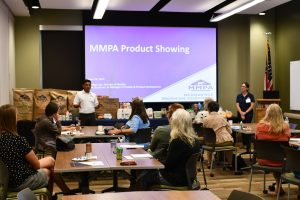

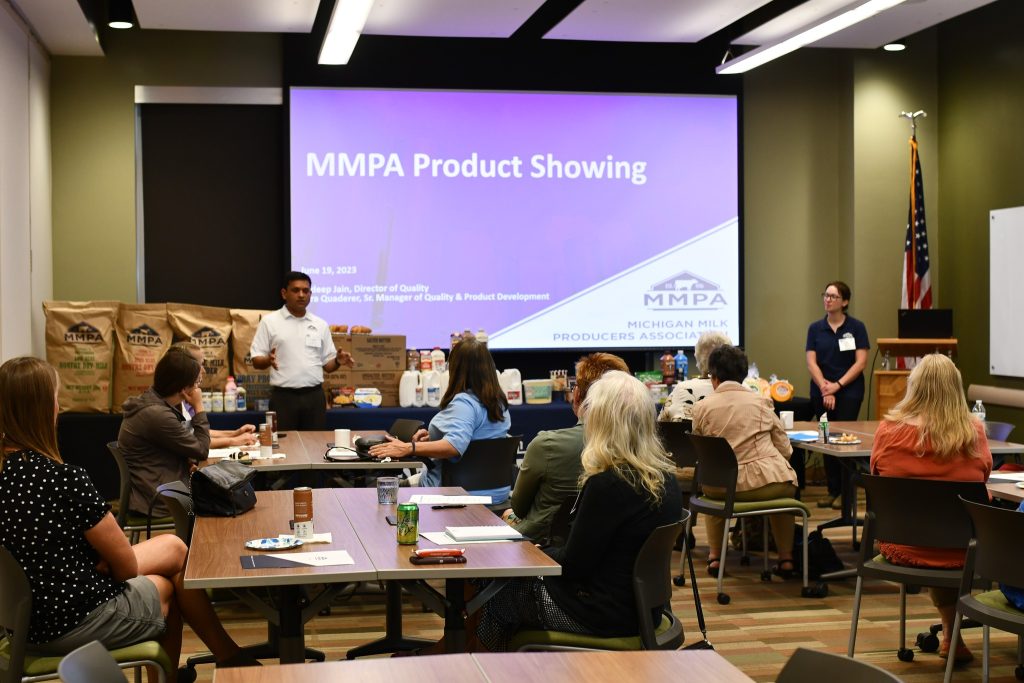
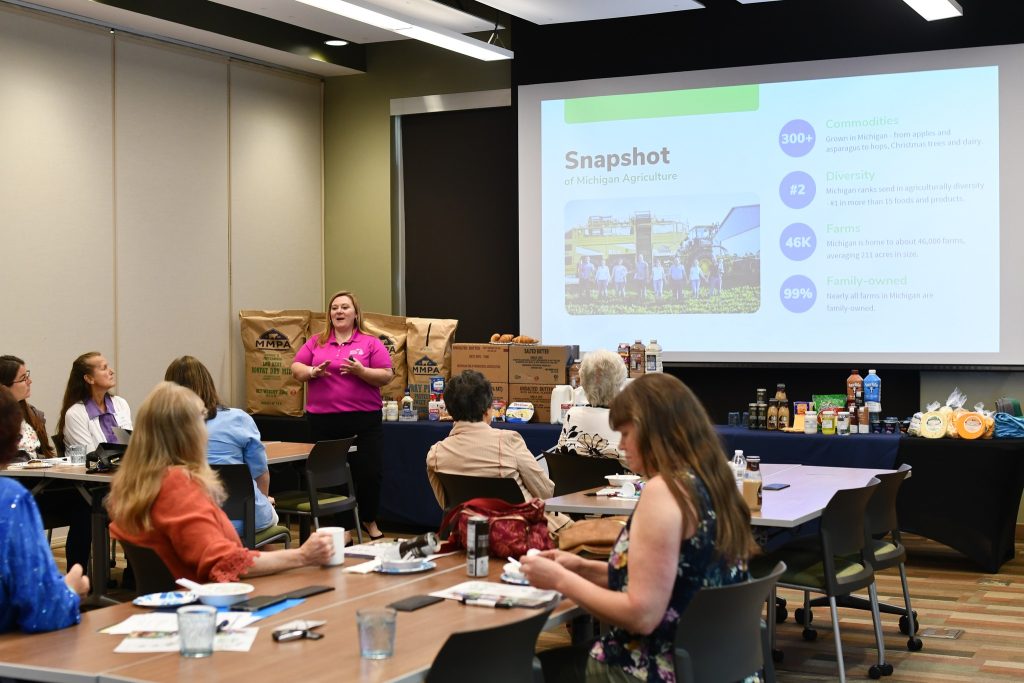
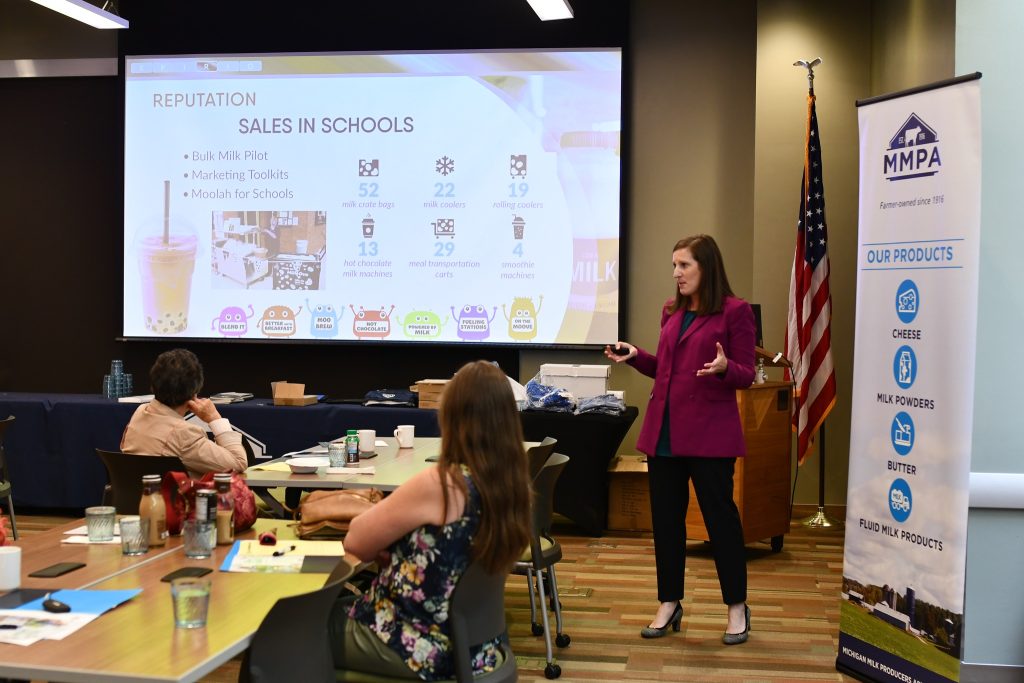



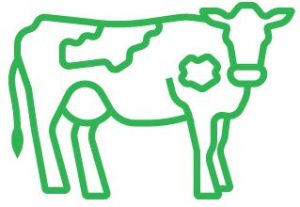
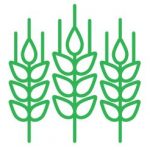




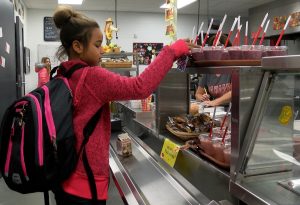 “In our schools, 80% of school meals include a milk. Schools must offer milk with every meal, but students are not required to take one,” Scott Higgins, President & CEO of American Dairy Association (ADA) Mideast said. “We work with schools to include multiple dairy products on their daily menu. This helps ensure that the child who doesn’t choose milk can choose yogurt or a yogurt-based smoothie. It’s about increasing student access for additional dairy products.”
“In our schools, 80% of school meals include a milk. Schools must offer milk with every meal, but students are not required to take one,” Scott Higgins, President & CEO of American Dairy Association (ADA) Mideast said. “We work with schools to include multiple dairy products on their daily menu. This helps ensure that the child who doesn’t choose milk can choose yogurt or a yogurt-based smoothie. It’s about increasing student access for additional dairy products.” “If school is the moment that we have an opportunity to give students our best product, we should be doing everything we can to offer them opportunities to enjoy milk, cheese, yogurt, smoothies and hot chocolate,” Higgins said.
“If school is the moment that we have an opportunity to give students our best product, we should be doing everything we can to offer them opportunities to enjoy milk, cheese, yogurt, smoothies and hot chocolate,” Higgins said.

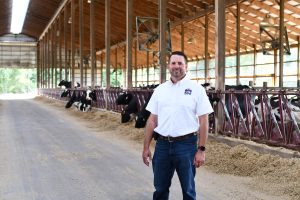
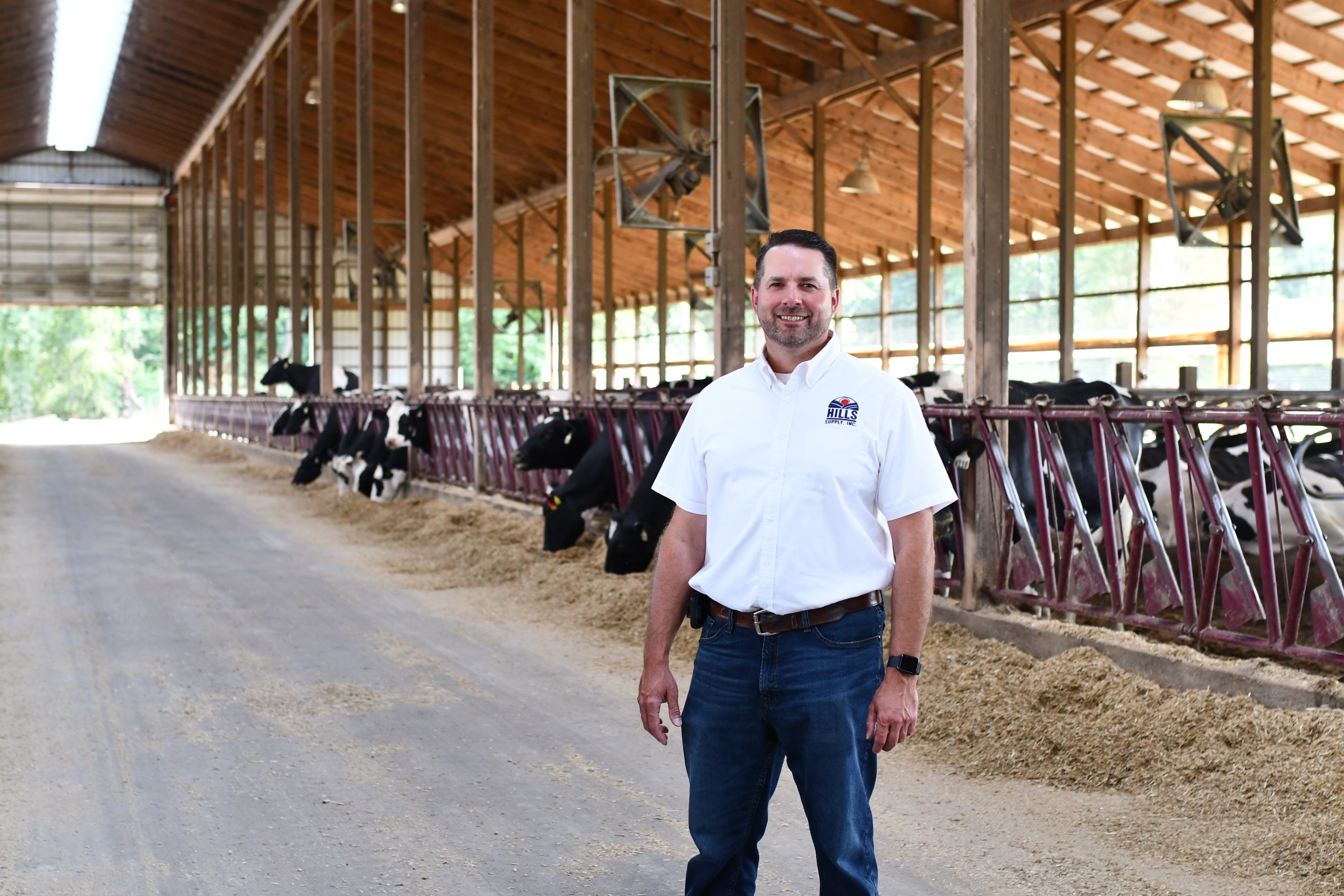
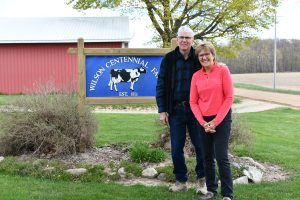
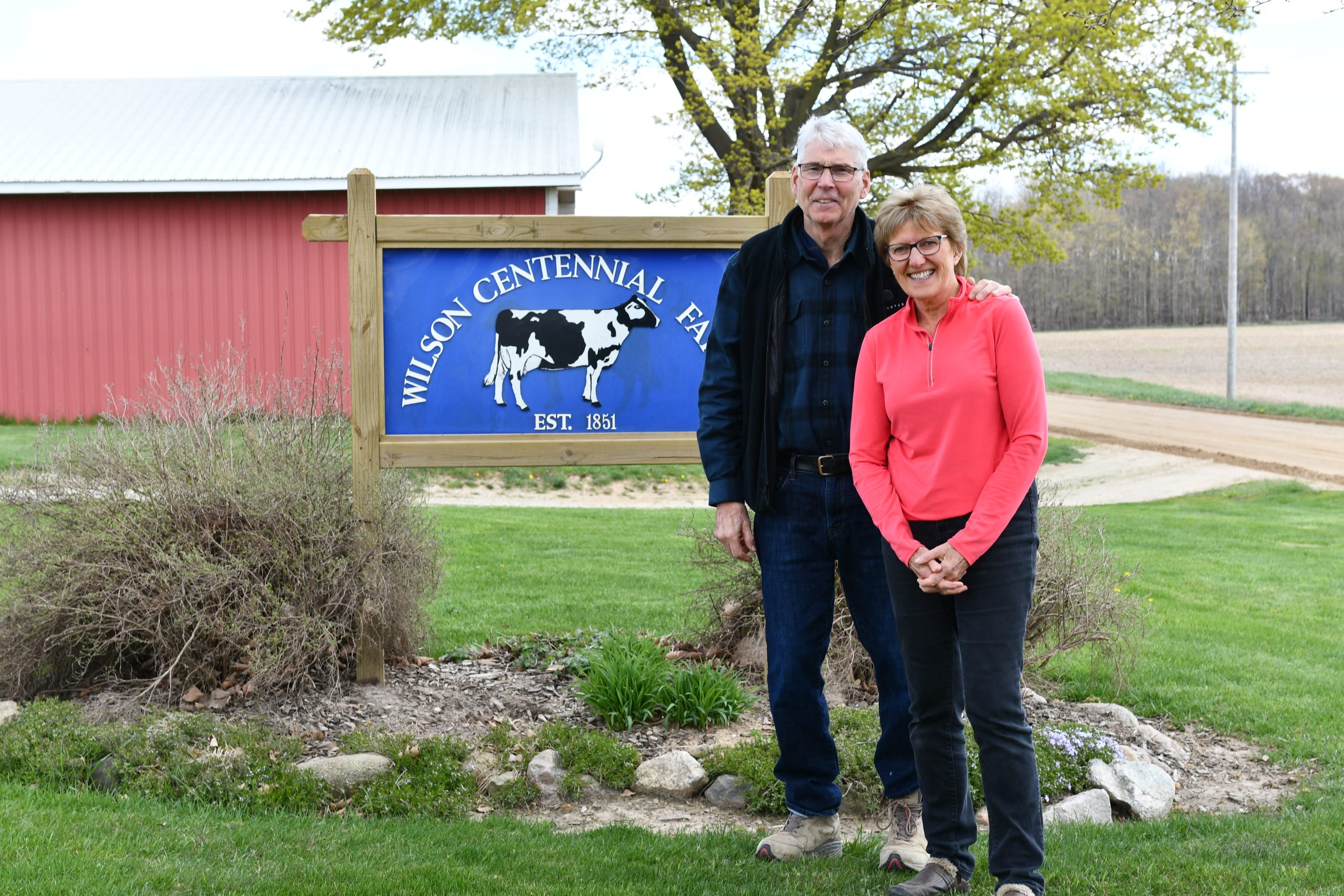
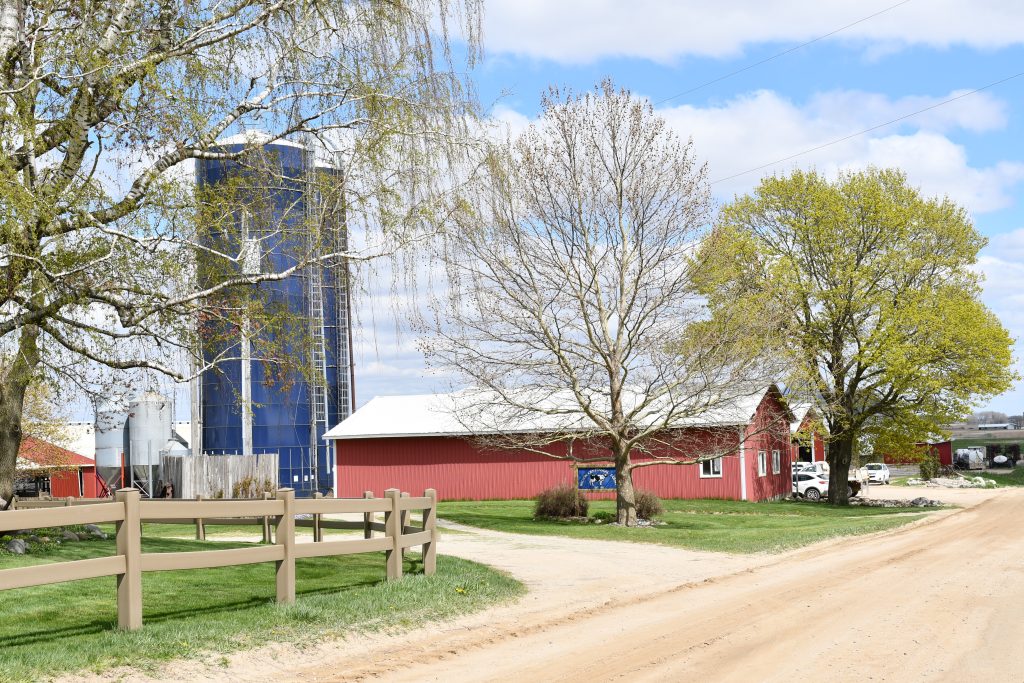
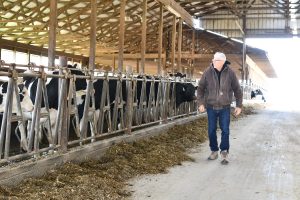
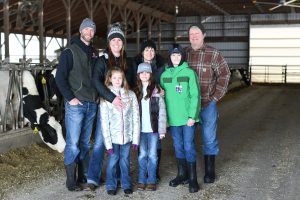
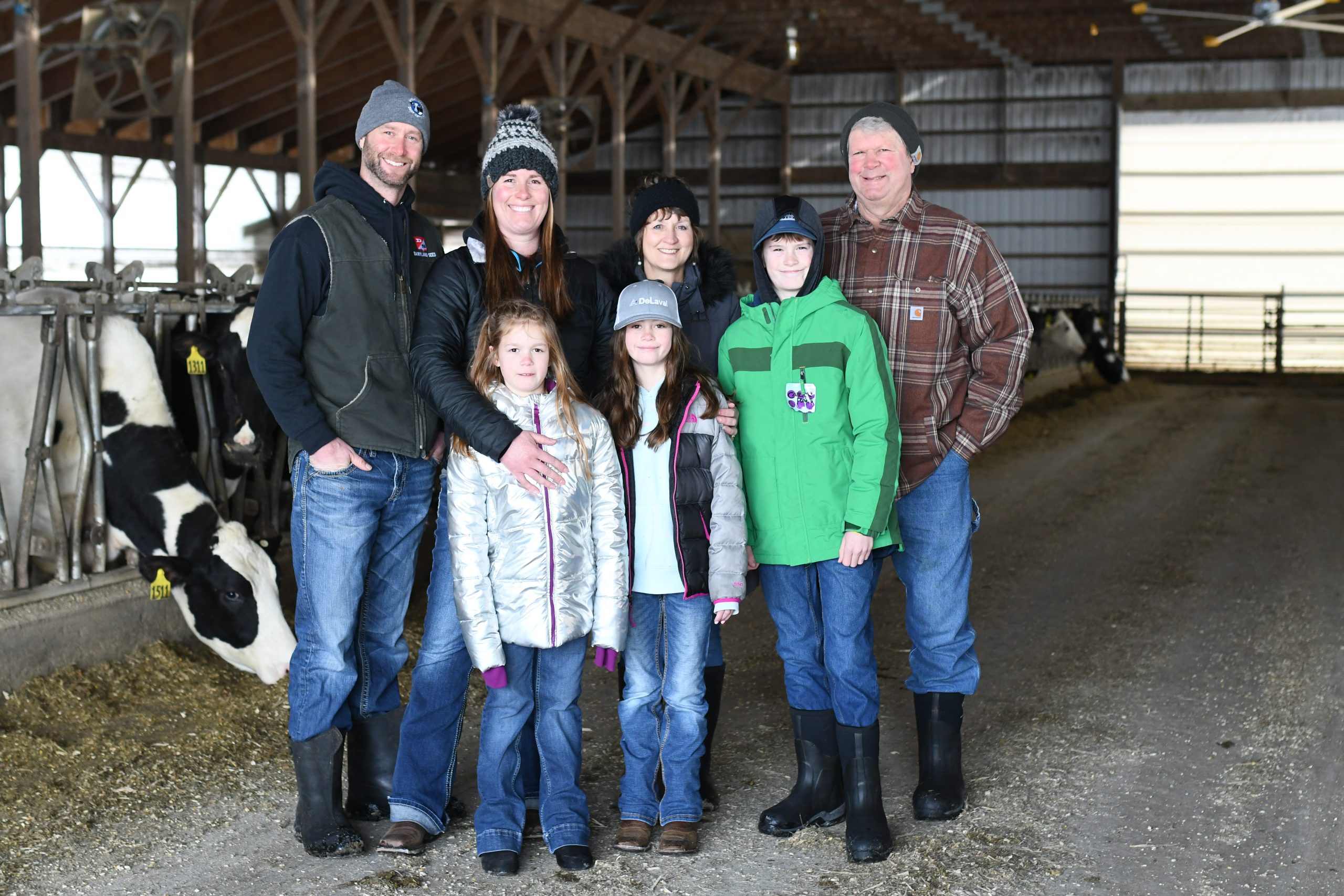
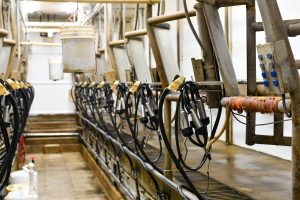
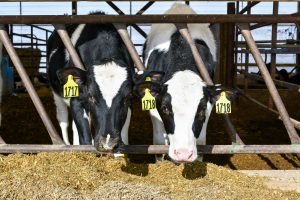
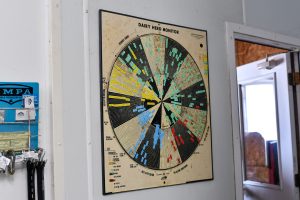

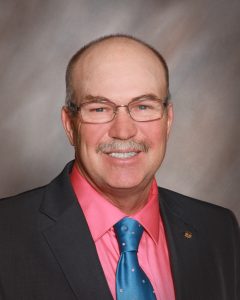 By Doug Chapin, MMPA Board Chairman
By Doug Chapin, MMPA Board Chairman